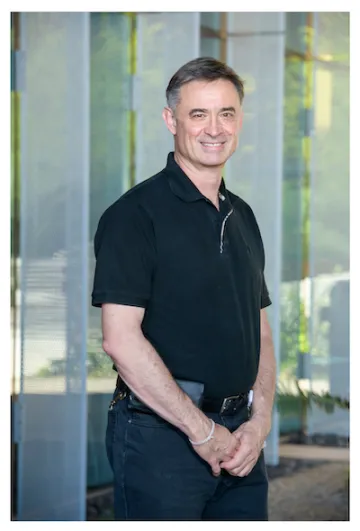Unraveling differences between healthy and disease-laden aging
Researchers at the University of Arizona’s BIO5 Institute are exceptionally poised to understand the processes of healthy aging, determine the causes of age-related diseases, develop life-changing therapeutics, and maximize independence for higher quality

With more living longer, the aging population presents both unique challenges and opportunities to health care. Nearly one quarter of the global disease burden is attributed to the elderly - a group expected to more than double by 2050.
Molecular drivers of aging hold the keys to extend healthy human lifespan and both delay the onset of and develop targeted therapeutics for age-associated diseases. George Sutphin, assistant professor of molecular and cellular biology, neuroscience, cancer biology, and genetics, integrates systems biology, comparative genetics, and molecular physiology to identify new genetic and environmental factors in aging and characterize their roles in age-associated diseases
Some changes to the brain are expected with aging, like mild decreases in memory, multitasking, and attention span. Despite these common changes in cognition, many older adults develop debilitating neurological diseases such as Alzheimer’s and Parkinson’s.
Carol Barnes, director of the Evelyn F. McKnight Brain Institute, pioneers the field of precision aging and brain health. By understanding how the brain changes with age, scientists and clinicians can better assess functional impairments on information processing and memory, ultimately leading to better prevention and therapeutic strategies.
Like the brain, our bones also deteriorate over time, especially for women. Zhao Chen, department chair of epidemiology and biostatistics in the Mel & Enid Zuckerman College of Public Health, has contributed to osteoporosis prevention through her findings on body composition changes with intervention and aging. Dr. Chen, a professor of anthropology and statistics, also investigates bone strength and skeletal muscle losses associated with aging, as well as hormone and calcium/vitamin D interventions.

Janko Nikolich, PhD
The body’s immune system similarly weakens with age, increasing the vulnerability to infections and cancer. Co-director of the Arizona Center on Aging and immunobiology department head Janko Nikolich addresses the intersection of aging and immunity from three main angles.
First, the physician-scientist studies how the immune system changes over one’s lifespan, and how those changes affect our interactions with microbial pathogens. Dr. Nikolich and his team have discovered degenerative changes that adversely affect production and maintenance of immune cells. Moreover, they’ve found multiple defects in sensing and response to bacteria and viruses, leading to impairment in the activation of the immune system. These findings are a springboard to correct the age-associated molecular and cellular defects with novel targeted strategies.
To address the causes and consequences of whole-body inflammation in aging, Nikolich integrates information from the immune system with gut function, cellular metabolism and energy sensing. He aims to determine whether scientists and physicians can intervene against diseases of aging and, perhaps normal aging itself, by modulating inflammation.
“Inflammation is a protective process if deployed immediately and extinguished quickly after the infection is gone. But if it lingers and is not extinguished, it becomes one of the worst enemies of healthy aging, making most, if not all, chronic diseases worse,” said Dr. Nikolich, also a professor of medicine, nutritional sciences, genetics and neuroscience.
Based on this, Nikolich is devising anti-inflammatory interventions to extend longevity. Once he understands the molecular basis for end-organ function and factors that lead to diminished quality of life, the physician-scientist will implement a drug discovery program to optimize treatments to prolong life.
Richard Simpson, associate professor of nutritional sciences, pediatrics and cancer biology, focuses on the effects of aging, stress and exercise on the immune system. Through his translational research, Simpson, also an associate professor of physiological sciences and immunobiology, aims to discover how exercise and other behavioral interventions offset age-related reductions in immune system functioning.
Purnima Madhivanan, associate professor of public health, studies the protective effects of yoga on elderly health. Current lifestyle intervention approaches are poorly suited to older patients with multiple, co-occurring, and inter-related health conditions. Madhivanan believes that comprehensive, holistic approaches that improve physical, emotional and mental well-being are better suited for an aging population.
To address this unmet need, Madhivanan is adapting Senior Yoga, an evidence-based mind-body lifestyle program, for primary care settings in India and Tucson. Her studies will provide a better understanding of interventions that reduce the burden caregivers experience to improve the health of the aging patient.
